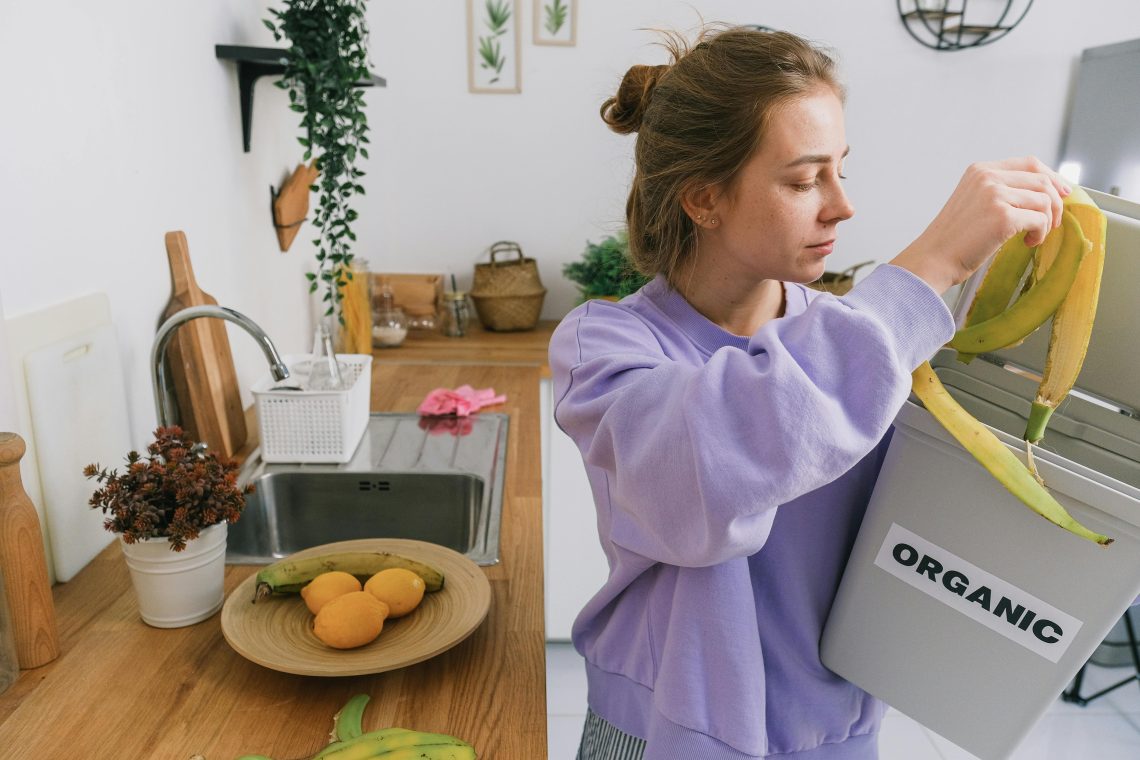Composting kitchen waste is one of the simplest yet most impactful ways to reduce your environmental footprint while enriching your garden. Every year, millions of tons of food scraps end up in landfills, contributing to greenhouse gas emissions. By composting at home, you can turn organic waste into nutrient-rich soil, reduce landfill waste, and embrace a greener lifestyle. Whether you live in an apartment or a house with a backyard, there’s a composting method that fits your space and lifestyle. Here’s how you can get started.
Why Composting Kitchen Waste Matters
Composting isn’t just about reducing trash—it’s a powerful way to support the environment and your garden. When food waste decomposes in landfills, it produces methane, a potent greenhouse gas. Composting at home avoids this by breaking down organic matter aerobically, which significantly reduces harmful emissions.
Beyond environmental benefits, composting creates a valuable resource for your plants. The resulting compost improves soil structure, retains moisture, and provides essential nutrients, reducing the need for chemical fertilizers. It’s a win-win for both the planet and your garden.
What You Can and Can’t Compost
Not all kitchen waste is suitable for composting. Knowing what to include—and what to avoid—ensures a healthy, odor-free compost pile.
Items You Can Compost:
- Fruit and vegetable scraps (peels, cores, seeds)
- Coffee grounds and filters
- Eggshells (crushed for faster breakdown)
- Tea bags (ensure they’re plastic-free)
- Nut shells (except walnut shells, which can be toxic)
- Grains and bread (in moderation to avoid pests)
Items to Avoid:
- Meat, fish, and dairy (attracts pests and causes odors)
- Oily or greasy foods (disrupts the composting process)
- Diseased plants (can spread pathogens)
- Pet waste (may contain harmful bacteria)
- Non-compostable packaging (even if labeled “biodegradable”)
Simple Methods for Composting at Home
Depending on your living situation, you can choose from several composting methods. Here are three easy approaches to get started.
1. Backyard Composting
If you have outdoor space, a traditional compost pile or bin is an excellent option. Choose a shaded, well-drained spot and layer green (nitrogen-rich) and brown (carbon-rich) materials. Turn the pile weekly to aerate it and speed up decomposition. In a few months, you’ll have rich compost ready for your garden.
2. Vermicomposting (Worm Composting)
Perfect for apartments or small spaces, vermicomposting uses red wiggler worms to break down food scraps. A small bin with bedding (like shredded newspaper) and worms can sit under your sink or on a balcony. The worms process scraps quickly, producing nutrient-dense “worm castings” ideal for houseplants.
3. Bokashi Composting
This anaerobic method uses a special bran inoculated with beneficial microbes to ferment food waste, including meat and dairy. Bokashi bins are compact and odor-free, making them great for indoor use. After fermentation, the waste can be buried in soil or added to a traditional compost pile.
Tips for Successful Composting
To keep your compost healthy and efficient, follow these best practices:
- Balance green and brown materials: Aim for a 1:3 ratio of greens (food scraps) to browns (dry leaves, cardboard).
- Chop or shred large pieces: Smaller scraps decompose faster.
- Keep it moist: Your pile should feel like a damp sponge—not too wet or dry.
- Aerate regularly: Turning the pile prevents odors and speeds up decomposition.
- Monitor temperature: A warm pile (between 120-160°F) indicates active composting.
Using Your Finished Compost
Once your compost is dark, crumbly, and earthy-smelling, it’s ready to use. Here’s how to make the most of it:
- Enrich garden soil: Mix compost into planting beds to boost fertility.
- Top-dress lawns: Sprinkle a thin layer to improve grass health.
- Feed potted plants: Blend compost with potting mix for container gardens.
- Make compost tea: Steep compost in water for a liquid fertilizer.
Composting kitchen waste is a simple yet powerful step toward sustainability. By diverting food scraps from landfills, you reduce greenhouse gases and create a valuable resource for your plants. Whether you opt for a backyard pile, a worm bin, or a Bokashi system, the key is consistency and balance. Start small, experiment with methods, and soon, composting will become a seamless part of your greener lifestyle. Every scrap you compost is a step toward a healthier planet—so why not begin today?






